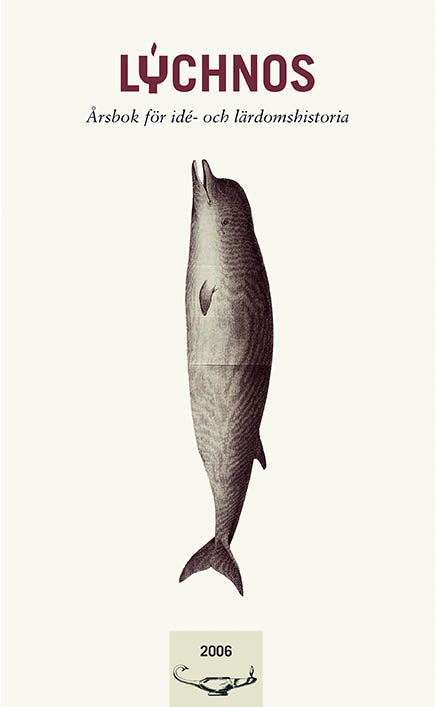On the object of the history of philosophy
Abstract
The article deals with different aspects of how the historiography of philosophy constitutes its object. It argues that differences between different research traditions can be illuminated in terms of interests of knowledge which determine the questions and basic concepts of analysis in studies in the history of philosophy. Further, it claims that interests of knowledge always play such a role, and therefore that they ought to be clearly delineated and be actively employed in scholarly research. But it is also argued that such an approach must be combined with a critical reflection on the differences between the historian's presuppositions and the presuppositions under which the philosopher studied labored. Without such a reflection, the historian runs a palpable risk of hypostasizing his or her own questions and categories into self-evident givens. In connection with modern intellectual history, the importance of noticing differences and discontinuities between variations in forms of rationality and problematizing traditional internal disciplinary historiographies is stressed. In a reflection on the history of philosophy along these lines, a short case-study of the ancient conception of philosophy is presented. Pierre Hadot's analyses of antiquity's philosophia as a way of life rather than a purely theoretical activity are thematized here. His account of spiritual exercises in ancient philosophical schools as well as his polemics against scholarship that disregards these dimensions is discussed. One consequence drawn from the analysis is that historians of philosophy often distort ancient philosophy in their interpretations because they assume a modern understanding of what philosophical activity is. This discussion culminates in an account of possible ways of problematizing philosophical historiography as disciplinary history.
Downloads
Published
Issue
Section
License
This work is licensed under a Creative Commons Attribution 4.0 International License. The copyright for the work published in Lychnos remains with the authors.


